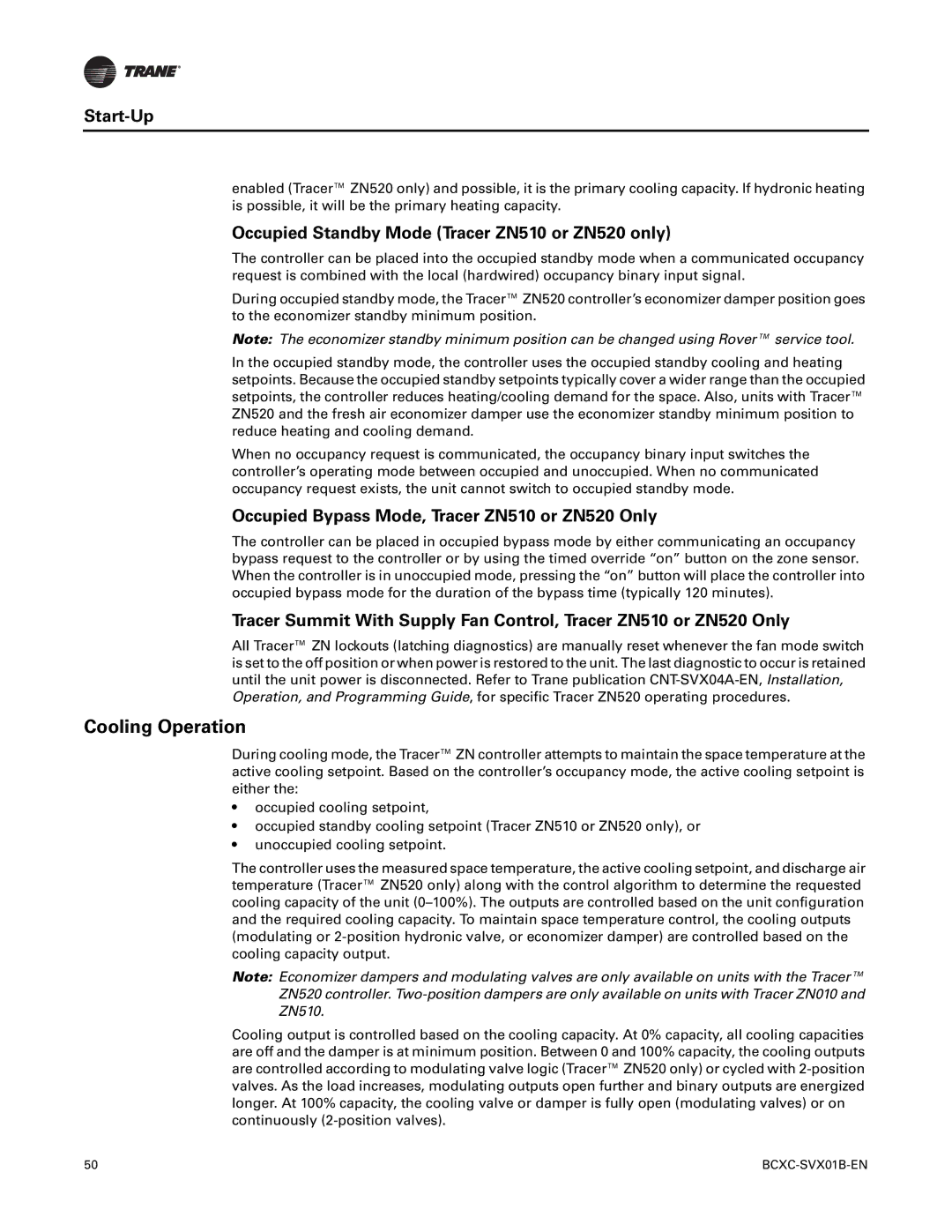
Start-Up
enabled (Tracer™ ZN520 only) and possible, it is the primary cooling capacity. If hydronic heating is possible, it will be the primary heating capacity.
Occupied Standby Mode (Tracer ZN510 or ZN520 only)
The controller can be placed into the occupied standby mode when a communicated occupancy request is combined with the local (hardwired) occupancy binary input signal.
During occupied standby mode, the Tracer™ ZN520 controller’s economizer damper position goes to the economizer standby minimum position.
Note: The economizer standby minimum position can be changed using Rover™ service tool.
In the occupied standby mode, the controller uses the occupied standby cooling and heating setpoints. Because the occupied standby setpoints typically cover a wider range than the occupied setpoints, the controller reduces heating/cooling demand for the space. Also, units with Tracer™ ZN520 and the fresh air economizer damper use the economizer standby minimum position to reduce heating and cooling demand.
When no occupancy request is communicated, the occupancy binary input switches the controller’s operating mode between occupied and unoccupied. When no communicated occupancy request exists, the unit cannot switch to occupied standby mode.
Occupied Bypass Mode, Tracer ZN510 or ZN520 Only
The controller can be placed in occupied bypass mode by either communicating an occupancy bypass request to the controller or by using the timed override “on” button on the zone sensor. When the controller is in unoccupied mode, pressing the “on” button will place the controller into occupied bypass mode for the duration of the bypass time (typically 120 minutes).
Tracer Summit With Supply Fan Control, Tracer ZN510 or ZN520 Only
All Tracer™ ZN lockouts (latching diagnostics) are manually reset whenever the fan mode switch is set to the off position or when power is restored to the unit. The last diagnostic to occur is retained until the unit power is disconnected. Refer to Trane publication
Cooling Operation
During cooling mode, the Tracer™ ZN controller attempts to maintain the space temperature at the active cooling setpoint. Based on the controller’s occupancy mode, the active cooling setpoint is either the:
•occupied cooling setpoint,
•occupied standby cooling setpoint (Tracer ZN510 or ZN520 only), or
•unoccupied cooling setpoint.
The controller uses the measured space temperature, the active cooling setpoint, and discharge air temperature (Tracer™ ZN520 only) along with the control algorithm to determine the requested cooling capacity of the unit
Note: Economizer dampers and modulating valves are only available on units with the Tracer™ ZN520 controller.
Cooling output is controlled based on the cooling capacity. At 0% capacity, all cooling capacities are off and the damper is at minimum position. Between 0 and 100% capacity, the cooling outputs are controlled according to modulating valve logic (Tracer™ ZN520 only) or cycled with
50 |
|
